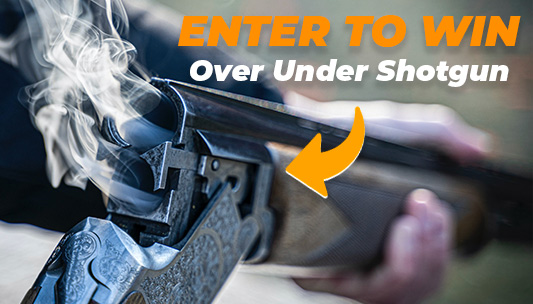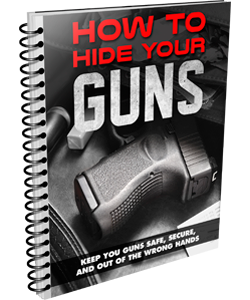Make the best out of your beagle hunting by learning more about your pet companion!
RELATED: Best Hunting Dogs As Your Companion
Beagle Hunting | What You Need to Know
Basic Beagle Facts
Before we go into the do’s and don’ts of beagle hunting, one should start by understanding their breed. When hunters use beagles for the hunt, it is called Beagling.
But just what can these canines do that other dog breeds can’t? The answer to this can be rather lengthy.
Beagles are said to be good hunting companions. They were mainly used for hunting hare and rabbits but rabbit beagles can hunt for other small game.
Their exceptional ability to track the scent of the game has placed them in the spotlight. They were also known to have good stamina and, if given a good rest, can last the longer during the hunt.
This would almost guarantee to eventually catch the hare. Let’s start with the assumption that you already have found the right hunting hound.
So the next thing is to train him for hunting purposes. The following are the do’s and don’ts of beagle hunting.
DO’s
Tip #1: Build a Trusting Relationship
The trust between the handler and the beagle is very important for a life-long bond. The first thing you should do is not to force yourself on the pup.
It is best to do nothing and allow the canine to explore its new environment. Let them do the trust process at their own pace, not yours.
Just do what normal dog owners do. Play with them, feed them, pet them, bath them and all those other things.
Once they roll over and allow you to scratch their bellies then they are starting to trust you.
Tip #2: Start Them at the Right Time
Once he starts responding to you can start introducing to them the scents of rabbits or hares. The ideal age is between the ages of 5 to 7 months.
Walk then to spots where you often see a rabbit. Rabbits often emerge out of their holes in the evening.
Encourage them to explore and allow them to familiarize themselves with the smell. This is the quickest and simplest way to get them to start hunting.
Tip #3: Give them the Exercise They Need
Beagles have tons of energy. They need more exercise than just walking a few street corners. Allow them to run for at least 2 to 3 hours on a daily basis.
|
This will keep them fit and prevent them from getting overweight.
Tip #4: Become their Home Base
As they start on the hunt, be their home base by allowing them to keep track of your position. You can achieve this by standing still and regularly talk to them in a conversational tone.
By doing this they will know where you are by hearing the sound of your voice. Therefore, they can continue focusing on tracking game without having to constantly look up to check where you are.
Tip #5: Let them Learn Through Experience
Kicking a pile or going through a bush while bringing your dogs with you can be counterproductive. Allow the beagles to learn where the best rabbit or hare hiding locations are through experience.
As they learn this they will become more efficient in finding small game. You must always remember that these dogs have been bred to do these things.
They live and breathe to hunt and chase rabbits. Patience is the key.
Tip #6: Run them with the Big Dogs
Running a pup with a pack of experienced beagles is the best way for them to learn. The little one will discover how the big dogs run and hunt rabbits.
The more practice he gets the more skilled he’ll be in chasing them rabbits down.
RELATED: The 10 Best Bird Hunting Dogs For All Types Of Game And Hunts
Tip #7: Time Your Hunts
Depending on the game that you want your beagles to hunt, you should take note of the time of day and season. Your pets would be ineffective if you just ask them to track a scent if it’s not even on the right spot and the right location to let them run.
Speaking of hunts, pack this 13-in-1 multitool inside your dog's hunting vest.
DON’Ts
Tip #8: Don’t Give Them Advance Obedience Training
They just need basic formal training which is said to be manners training. Hunting is in their genes.
Train them to come to you, the words “down” and “no.” is enough. Let nature do the rest.
They will rely on their sense of smell to track game and that is one thing that you cannot teach them.
Tip #9: Don’t Get Impatient
Continue to be in the area and give them as much time they need even when the pup reaches a tough check, even if it ends in a loss.
They will learn from these checks and gain valuable experience from it. In return, these occurrences result in shorter check times in the future.
But if you walk away, they will abandon the check to look for you developing bad habits and faults in the process. Give them plenty of opportunities to learn through experience.
Tip #10: Don’t Overdo It
If you want to maximize the scent of the game for the dog, allow them to hunt solo. If you want to let them track in a pack, do it with a maximum of three beagles.
More than that will divide the scent which may result in a long time for the pup to become adept in tracking the animal.
Tip #11: Don’t Shoot The Rabbit — Yet
Rabbit hunting with dogs has always been popular and beagles are known to howl while in pursuit of game. You can also train them to keep silent and bark only once if they locate the rabbit.
Or you can have them bark throughout the entire pursuit. This will help you and your buddies to be aware of the dogs’ location.
Look in front of the barking, not at it. Rabbits often pause to look back if they create enough distance between itself and the dogs.
This would be the best time to take the shot.
Tip #12: Don’t Confuse Them
|
Consistency is the key for your pets to thrive in what you want them to do.
Stick to one training regimen and hunting skill. This will keep you from confusing the dog.
This will boost their confidence, as well as saves you a lot of time to train them.
Tip #13: Don’t be Hasty
Inexperienced beagles have yet to hear the sound of gunfire. Firing your gun at close range for the first time may give you negative reactions that will make it unfit for hunting in the future.
Start with low-level gunfire by pulling the trigger at a distance. As your protégé becomes accustomed to the sound you can start moving closer.
Watch this amazing Beagling video by Mark Carder:
There are a lot more things that you need to learn about the do’s and don’ts of beagle hunting. The ones mentioned above are but a taste of the excitement and fun that you can get from training to actual hunting with a beagle.
If you’re serious in Beagling, you have to invest a lot more time, effort and money to get where you want to be with your pet.
Did you get the information you needed about beagling? Share your thoughts with us in the comments section below!
UP NEXT:
- Pit Bull Facts | 10 Reasons Every Prepper Should Own A Pit Bull
- How To Identify & Stop The 8 Top Predators That Prowl Your Homestead
- The Weakness Of Underground Bunkers

Editor’s Note: This post was originally published on January 17, 2017, and has been updated for quality and relevancy.





Never run a young pup with an experienced pack regardless of what this article states. You will definitely hurt the pups self confidence and if it can’t keep up it will quit the chase
Give the puppy praise if it gives up. If the dog disappears and you have to leave the area to get more people to help you look, leave a heavily scented, t-shirt or socks are best for them to find. When they do appear just give them plenty of praise and loving. As a teen my beagle was missing for hours late one night. I left the socks and came back and found her on the socks. I was happy to see my dirty but tired beagle.
Tonight I did a one-hour run with my beagles in 28-degree weather. They did not find a rabbit scent but did tree a lot of squirrels (smile). That is a normal run. Since we are in a rural town, I keep them on leads when I run them here. Yesterday, we did 8 miles non-stop on country roads. They were frisky when we came home. How far can I run my beagles before I run them too much? Can a beagle run 8-miles or should I change how I run them? My beagles have GPS trackers because they follow their noses anywhere it leads them when they are free. If I let them run free after a scent, I assume that they will run together and I will be able to keep up with them because of the howling. Is this correct? When they get out solo, they do not come home. I have to track them. One last question. Often, we run at night because that is when I can run them. Should I worry about coyotes? I can carry a firearm. However, I am not sure that coyotes will actually attack my dogs when I am with them